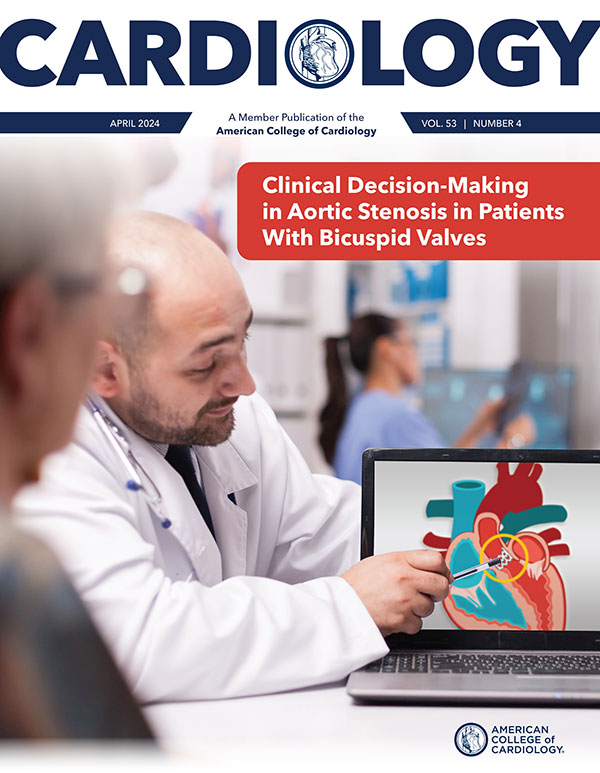New in Clinical Documents | HFrEF Management: Updated Guidance From New Expert Consensus Decision Pathway

The ACC's newest Expert Consensus Decision Pathway (ECDP) released in early March provides an updated framework for the many decisions required in the management and treatment of patients with heart failure with reduced ejection fraction (HFrEF).
The document, published in JACC, updates the 2021 ECDP for the Optimization of Heart Failure Treatment based on new data from recent large clinical trials like STRONG-HF and VICTORIA and recommendations from the 2022 ACC/AHA/HFSA Heart Failure Guideline.
"This decision pathway, updated with the latest evidence for HFrEF management, is an essential contribution to every clinician's toolbox," says Writing Committee Chair Thomas M. Maddox, MD, MSc, FACC. "It contains clear and simple HFrEF management pathways and practical advice in managing these complex patients."
Specifically, the ECDP provides updated guidance on 10 pivotal issues in HFrEF, including how to initiate, add or switch therapies with consideration of newer evidence-based guideline-directed treatments for HFrEF.
Practice Resources
Click here to read the entire 2024 ACC Expert Consensus Decision Pathway for Treatment of HFrEF.
Click here to access the Medication Management in Heart Failure Clinical Solutions Set to access ECDPs, clinician tools including a pocket guide and infographics on SGLT2is and the Treat HF app, as well as CardioSmart Patient Tools.
Visit and bookmark CardioSmart.org/HFrEF to download these tools and more for your patients, including worksheets to make the most of follow-up visits and a daily tracker.
It also addresses how to achieve optimal therapy given multiple drugs for HF, including augmented clinical assessment that may trigger modifications in guideline-directed therapy. Additionally, the ECDP provides guidance for managing the increasing complexity of HF, as well as common comorbidities.
"Clinicians can reference this document at the point-of-care to quickly and confidently ensure that they are providing the optimal care for their HFrEF patients," says Maddox.
Enhancing care coordination and helping clinicians determine when to refer patients to a HF specialist are also highlighted in the updated pathway. The document features a list of triggers, or case scenarios, to aide in the referral process, while a detailed list of essential skills for a Heart Failure Team is also included. Potential infrastructure enhancements (i.e., electronic health records, patient monitoring devices, mobile technologies, etc.) for optimizing care coordination are outlined as well.
Medication adherence is another important topic addressed by the ECDP. According to the World Health Organization there are several reasons for nonadherence that can be tied to a patient's social determinants of health, the therapy itself, multiple comorbidities, or processes (or lack thereof) within a health system.
The document includes 10 tips to improve adherence, as well as considerations for reducing patients' costs of care and for tailoring treatments for specific at-risk patient populations, including African Americans, older adults and patients meeting frailty criteria.
"Heart failure care is a fast-moving area, requiring constant updates in recommended management strategies," says Writing Committee Vice Chair James L. Januzzi Jr., MD, FACC. "This updated document reflects the ACC's commitment to support clinicians with clear and concise clinical recommendations."
Clinical Topics: Heart Failure and Cardiomyopathies, Acute Heart Failure
Keywords: Cardiology Magazine, ACC Publications, Heart Failure, Heart Failure, Reduced Ejection Fraction, Medication Adherence, Stroke Volume, World Health Organization

